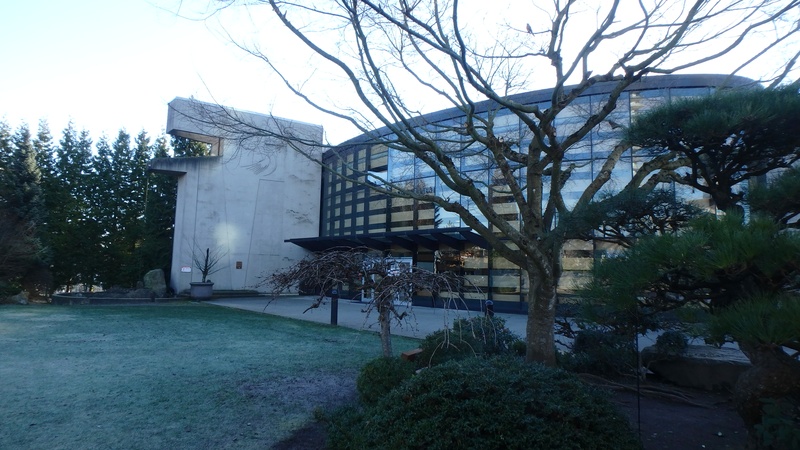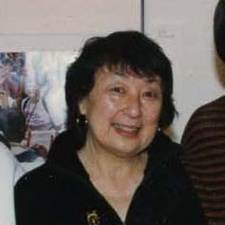Vancouver Speaks...
Sansei Howard Shimokura of Vancouver, 82, says: “I use both terms but never interchangeably. They are not equivalent. In fact I think we in Canada often use Nikkei inappropriately as if it means Japanese Canadian (JC). For example, Nikkei National Museum and Cultural Centre (NNMCC) is a very inappropriate use. It should be JCNMCC. I have often felt embarrassed to have to explain that it is a museum dedicated to JC history and culture. Also, although its public use is growing, Nikkei is often misused and remains an unknown term in the general population. I have often been asked what it means.”
Shimokura continues: “Language is ever evolving but I cannot see how Nikkei will ever become equivalent to JC in Canada or Japanese Americans in US or anywhere else in the world. Use of Nikkei should be used with more care by the media, journalists, even by educators, and inappropriate use should be called out.”
Vancouver Nisei Jean Kamimura says: “I have no argument about the title ‘Discover Nikkei.’ I first heard the word ‘Nikkei’ in San Jose, California at a conference with the main topic being ‘World War Two and Internment.’ This was the first time I had heard about, learnt of the Japanese Mexicans and their treatment of being removed from the coast and the Japanese Brazilians from the South American delegation, etc. It was a most interesting gathering - each group telling about their own experience and story; the only common thread was that we were all of Japanese ethnic background. This is the ideal use of the word ‘Nikkei’ to me. The way ‘Nikkei’ is used in this city, makes me wonder what ‘Redress’ was all about. We're Canadians.
“The way the NNMCC here uses it without any qualm - it hurts. The 10 years I spent getting the government and the people to understand we are part of the Canadian mosaic. We desire to be identified as ‘Japanese Canadian.’ Take a good look at the other ethnic groups - Italian Canadians, Chinese Canadians, Scottish Canadians, Phillippino Canadians, German Canadians, etc.”
Vancouver Nisei art curator and historian, Grace Eiko Thomson, believes the current Nikkei National Museum and Cultural Centre, should return its original name, the Japanese Canadian National Museum (as was inaugurated on September 22, 2000), that purports to embrace the meaning of Japanese Canadian, as interpreting and representing Japanese Canadian history, as its mission.
She says, “A Japanese Canadian (not Nikkei, a word which does not interpret our history) museum is especially important today to speak clearly through the various historic documents held in its Archive, especially on issues of racism, which is a major topic being raised at this time. We have ample information to speak from in our archival collections.
“I am not dismissing new immigrants. In fact, they are adding to Canadian culture and history, making things more interesting, just as those coming from other parts of the world are doing to the development of Canada’s history and culture. A Japanese Canadian museum’s mandate focuses on the development and preservation of Japanese Canadian history and culture, changing daily with new immigrants joining, also through new generations. What they bring should also in time become a topic for a museum exhibition: that is, their contributions to the development of Canada’s history.
“As I say, the first time I heard the word Nikkei was when the Nikkei Place opened in Burnaby. In analyzing the word, I find it to mean ‘Nik’ (Japanese) and ‘kei’ (lineage), that is, persons of Japanese ancestry. So it has no connection to those of us, like me, a Nisei, a second generation Japanese Canadian, born and raised in Canada. It is to be remembered that at one time, our descriptive adjective was hyphenated: Japanese-Canadian. Since the Redress, we (largely the younger Nisei and Sansei, second and third generation) dropped the hyphen to become, simply, Japanese Canadian, using the word ‘Japanese’ as a descriptive adjective, something European Canadians have no need for, since 'white' is accepted. We, today, are being called “people of colour” (name I have not yet accepted as again dividing, not working to unite us as human beings) by some, and are often asked largely by racist others, 'where do you come from?' To which I have come to respond “I am a Canadian, born in Canada'” and add, “how about you, where do you come from?” And when yelled at to “go back where you come from,” I respond “and where do you come from?” As we all know, and acknowledge, we (not just Japanese Canadians) are living on traditional, unceded, territories.
I never heard my parents use the word ‘Nikkei.’ In fact they called themselves ‘nihonjin’ (Japanese) until they achieved citizenship, and those of us, born to immigrant parents, like myself, we were from birth referred to as ‘Nisei,’ second generation, the Japanese word also describing our ancestry,” says the octogenarian.
* * * * *
As a parallel experience in the US, Nancy Araki was a volunteer and the first employee hired by the Japanese American National Museum in Los Angeles, California, during its formative years in the late 1980s. Araki recalls:
“Before the incorporation, a large meeting of about 26-30 Japanese community non-profit organizations came together at the Japanese Cultural and Community Center. The purpose was to introduce the idea of the Japanese American National Museum and share its program concepts, possible building sites, immediate and long-range plans and drawings. After a lengthy discussion, the value of creating a museum which would preserve and tell the experience of Japanese in America, not just locally, but nationally, was acceptable and leadership of another organization called for a vote of support. The establishment of the Japanese American National Museum in Little Tokyo was unanimously voted in positively.”
* * * * *
So, if we take a cursory look at our Japanese Canadian institutions, how do they identify themselves? “The Greater Vancouver Japanese Canadian Citizens’ Association (GVJCCA) is a non-profit organization that builds communities, and advocates for social justice primarily for people in Canada of Japanese heritage, and their families. The GVJCCA is the publisher of The Bulletin/Geppo, “a journal of Japanese Canadian community, history & culture.”
* * * * *
Dr. Jiro Takai, Professor and Dean of the School Education, Nagoya University, Japan, grew up in Saskatoon, Ste. Foy, and Sault Ste. Marie. He was a student at the University of Windsor when the infamous Vincent Chin incident occurred across the river in Detroit, impacting his life so much that he decided to leave North America in favour of finding his roots in Japan. He eventually went on to get his PhD from the University of California, Santa Barbara, and has since settled in Nagoya, where he has been teaching psychology at universities for 30 years. I asked him to weigh in on this discussion.
Dr. Takai explains: “Japanese Canadian vs Nikkei? To me, Nikkei is like the word "Negro," a historical word filled with negative connotations, which in our case, would be of internment and being scapegoats. For the ordinary Canadian of that time, we were, without exception, sly, sneaky aggressors who cannot be trusted, and deserving to be dehumanized. Whether you like it or not, Nikkei bears with it memories of the war, and whilst we had nothing to do with the attack on Pearl Harbor, which is not even in Canada, we were forced to bear the guilt of aggression and ruthlessness of the motherland. Even in the 70's, fellow Canadians would say to me, "You slimy bastards bombed Pearl Harbor," and an elderly lady, when she asked for my ethnicity and I responded "Japanese," she said, "Oh.... Oh well, I guess that's okay." I reckon most Canadians do not even know what a Nikkei is, but us JCs do, and the very existence of that word will not allow us to forget our past, and we cannot feel any pride in being a "Nikkei." We were Nikkei during the war. But today, we are Japanese Canadians.
“Just like political correctness wiped the slate clean on the now prohibited word "Negro," which implies people in slavery, if not third-class citizens. The word was replaced with a blank piece of paper called "African American," which allowed the group to gain modern images of the Black people, people who are equal to Whites, who are educated and well off. "Japanese Canadian" serves the same function, giving us a new identity, going beyond our past, and instilling in us a solid identity as a full fledged member of the Canadian society. I notice that Nikkei in the USA as well, do not speak Japanese beyond Issei. Meanwhile, third and even fourth generation Chinese and Koreans hold on to their language. I have seen young Chinese eating dim sum with forks on Sunday, speaking Chinese mixed in with the occasional English, drinking Coke instead of jasmine tea, yet they still speak Chinese! Come on Nikkei! What's wrong with you being proud of who you are, expressing your culture and language freely? Nikkei are obviously not bent on keeping their culture like their Asian counterparts,” he says.
Dr. Takai continues: “In social psychology, we have what's called self-categorization theory. You are what social category you identify with. If we identify with Nikkei, we won't have any pride in our heritage, instead, we keep a low profile so as not to agitate the Canadians, who we conceive of as being generous enough to let us live in their country. We take what they give us, and put up with any abuse they may flog us with. But if we assume the identity as Japanese-Canadians, we can rightly participate in our government, and express our rights as equal citizens. We are Canadians as well as Japanese, and there is no need for us to feel any guilt about that. Labels can empower people, and this is the label we need to give us due pride for what we are."
* * * * *
Finally, then, it is interesting to note that of the dozens of JCs I’ve communicated with for this article, nobody chose “Nikkei” over Japanese Canadian. So who should have the final decision on this issue if not the members of the national community?
As a Canadian of Japanese descent, I expect the leaders of my national museum to explain their rationale to a community member when asked to do so, or are they above such scrutiny? Surely, transparency is called for from a publicly funded institution? While I scratch my head when it comes to figuring out the choice of “Nikkei” as a term that the leaders at the NNMCC decided on to self describe themselves, I remain unconvinced that Nikkei fully honours the role that our parents, grandparents, and great grand parents played in getting us all to this good place here in Canada, including all of the pain, sorrow, complexities, and heartache, to which we are all heir to.
Fair is fair: if those of us who have spoken out here simply do not understand the NNMCC’s rationale for the renaming of OUR museum, we do deserve to hear it. Our elders and esteemed members who built this national community at the very least deserve a dignified response.
With love and respect, norm
Editor’s note: Discover Nikkei is an archive of stories representing different communities, voices, and perspectives. The article presents the opinions of various Japanese Canadians and does not represent the views of Discover Nikkei and the Japanese American National Museum. Discover Nikkei publishes these stories as a way to share different perspectives expressed within the community.
© 2020 Norm Ibuki







